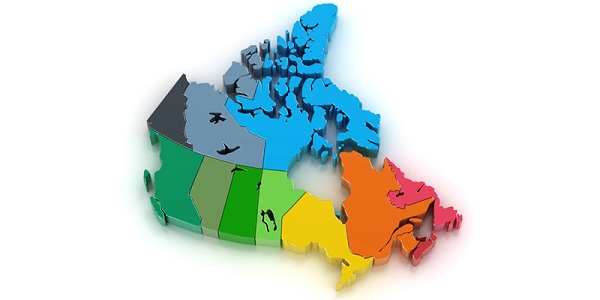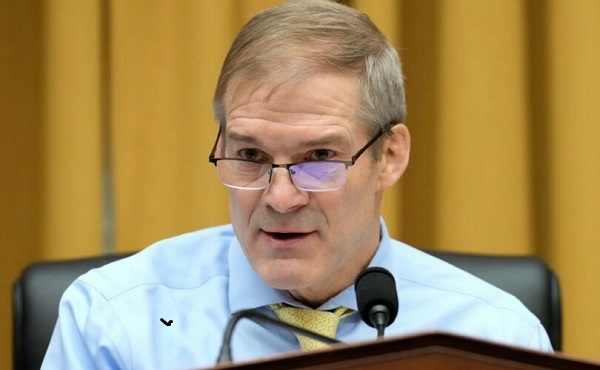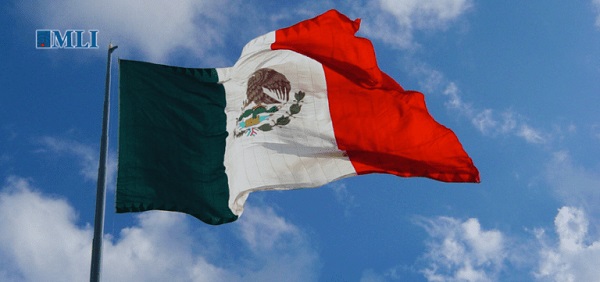News
Concerned about crime? Red Deer RCMP want to expand local Citizens on Patrol program

From Red Deer RCMP
Red Deer RCMP set to expand Citizens on Patrol program
The Red Deer RCMP is looking to grow the Red Deer City Citizens on Patrol (COP) program. The program currently has over 30 members who work as a volunteers, patrolling in Red Deer and providing tips to on duty officers. COP works to reduce crime through the active participation of citizens in crime prevention.
In addition to welcoming new volunteers to the organization, the duties performed by members will be seeing a shift as well. Patrols used to spend a lot of time in their vehicles, surveying different areas from afar. With the changes to the program, members will be more visible, undertaking foot patrols in traffic areas like the downtown, where they can communicate with business owners, talk with area residents, and assist people who might need help.
“We are hoping to recruit 10 to 15 new members to COP,” said Constable Derek Turner. “We know that there are a number of citizens out there who want to help, but may not know how to help our RCMP officers effectively or safely. These are the people I would like to see volunteer to be COP members. Having a group of volunteers with enhanced training patrolling the streets and supporting the efforts of the RCMP will be a valuable resource as we move forward.”
Citizens on Patrol members will be given training and the necessary equipment to keep them safe. Teams will patrol Red Deer’s downtown and report suspicious behaviour back to RCMP officers.
“Our police officers cannot be everywhere at once,” explains CST. Turner. “Volunteers through the COP program can help to ensure that we have eyes and ears in as many areas as possible. We hope that all our citizens recognize that we all have a responsibility in ensuring public safety, even if that is as simple as phoning in suspicious activity to our Police Non-Emergency Line.
If you would like to make a difference in public safety, including volunteering for COP, please contact Community Policing at 403-406-2483.
Business
Broken ‘equalization’ program bad for all provinces

From the Fraser Institute
By Alex Whalen and Tegan Hill
Back in the summer at a meeting in Halifax, several provincial premiers discussed a lawsuit meant to force the federal government to make changes to Canada’s equalization program. The suit—filed by Newfoundland and Labrador and backed by British Columbia, Saskatchewan and Alberta—effectively argues that the current formula isn’t fair. But while the question of “fairness” can be subjective, its clear the equalization program is broken.
In theory, the program equalizes the ability of provinces to deliver reasonably comparable services at a reasonably comparable level of taxation. Any province’s ability to pay is based on its “fiscal capacity”—that is, its ability to raise revenue.
This year, equalization payments will total a projected $25.3 billion with all provinces except B.C., Alberta and Saskatchewan to receive some money. Whether due to higher incomes, higher employment or other factors, these three provinces have a greater ability to collect government revenue so they will not receive equalization.
However, contrary to the intent of the program, as recently as 2021, equalization program costs increased despite a decline in the fiscal capacity of oil-producing provinces such as Alberta, Saskatchewan, and Newfoundland and Labrador. In other words, the fiscal capacity gap among provinces was shrinking, yet recipient provinces still received a larger equalization payment.
Why? Because a “fixed-growth rule,” introduced by the Harper government in 2009, ensures that payments grow roughly in line with the economy—even if the gap between richer and poorer provinces shrinks. The result? Total equalization payments (before adjusting for inflation) increased by 19 per cent between 2015/16 and 2020/21 despite the gap in fiscal capacities between provinces shrinking during this time.
Moreover, the structure of the equalization program is also causing problems, even for recipient provinces, because it generates strong disincentives to natural resource development and the resulting economic growth because the program “claws back” equalization dollars when provinces raise revenue from natural resource development. Despite some changes to reduce this problem, one study estimated that a recipient province wishing to increase its natural resource revenues by a modest 10 per cent could face up to a 97 per cent claw back in equalization payments.
Put simply, provinces that generally do not receive equalization such as Alberta, B.C. and Saskatchewan have been punished for developing their resources, whereas recipient provinces such as Quebec and in the Maritimes have been rewarded for not developing theirs.
Finally, the current program design also encourages recipient provinces to maintain high personal and business income tax rates. While higher tax rates can reduce the incentive to work, invest and be productive, they also raise the national standard average tax rate, which is used in the equalization allocation formula. Therefore, provinces are incentivized to maintain high and economically damaging tax rates to maximize equalization payments.
Unless premiers push for reforms that will improve economic incentives and contain program costs, all provinces—recipient and non-recipient—will suffer the consequences.
Authors:
National
Liberals, NDP admit closed-door meetings took place in attempt to delay Canada’s next election

From LifeSiteNews
Pushing back the date would preserve the pensions of some of the MPs who could be voted out of office in October 2025.
Aides to the cabinet of Prime Minister Justin Trudeau confirmed that MPs from the Liberal and New Democratic Party (NDP) did indeed hold closed-door “briefings” to rewrite Canada’s elections laws so that they could push back the date of the next election.
The closed-door talks between the NDP and Liberals confirmed the aides included a revision that would guarantee some of its 28 MPs, including three of Trudeau’s cabinet members, would get a pension.
Allen Sutherland, who serves as the assistant cabinet secretary, testified before the House of Commons affairs committee that the changes to the Elections Act were discussed in the meetings.
“We attended a meeting where the substance of that proposal was discussed,” he said, adding that his “understanding is the briefing was primarily oral.”
According to Sutherland, as reported by Blacklock’s Reporter, it was only NDP and Liberal MPs who attended the secret meetings regarding changes to Canada’s Elections Act via Bill C-65, An Act to Amend the Canada Elections Act before the bill was introduced in March.
As reported by LifeSiteNews before, the Liberals were hoping to delay the 2025 federal election by a few days in what many see as a stunt to secure pensions for MPs who are projected to lose their seats. Approximately 80 MPs would qualify for pensions should they sit as MPs until at least October 27, 2025, which is the newly proposed election date. The election date is currently set for October 20, 2025.
Sutherland noted when asked by Conservative MP Luc Berthold that he recalled little from the meetings, but he did confirm he attended “two meetings of that kind.”
“Didn’t you find it unusual that a discussion about amending the Elections Act included only two political parties and excluded the others?” Berthold asked.
Sutherland responded, “It’s important to understand what my role was in those meetings which was simply to provide background information.”
Berthold then asked, “You nevertheless suggested amendments to the legislation including a change of dates?”
“My role was to provide information,” replied Sutherland, who added he could not provide the exact dates of the meetings.
MPs must serve at least six years to qualify for a pension that pays $77,900 a year. Should an election be called today, many MPs would fall short of reaching the six years, hence Bill C-65 was introduced by the Liberals and NDP.
The Liberals have claimed that pushing back the next election date is not over pensions but due to “trying to observe religious holidays,” as noted by Liberal MP Mark Gerretsen.
“Conservatives voted against this bill,” Berthold said, as they are “confident of winning re-election. We don’t need this change.”
Trudeau’s popularity is at a all-time low, but he has refused to step down as PM, call an early election, or even step aside as Liberal Party leader.
As for the amendments to elections laws, they come after months of polling in favour of the Conservative Party under the leadership of Pierre Poilievre.
A recent poll found that 70 percent of Canadians believe the country is “broken” as Trudeau focuses on less critical issues. Similarly, in January, most Canadians reported that they are worse off financially since Trudeau took office.
Additionally, a January poll showed that 46 percent of Canadians expressed a desire for the federal election to take place sooner rather than the latest mandated date in the fall of 2025.
-

 Business2 days ago
Business2 days agoCBC’s business model is trapped in a very dark place
-

 Censorship Industrial Complex2 days ago
Censorship Industrial Complex2 days agoCongressional investigation into authors of ‘Disinformation Dozen’ intensifies
-

 Alberta2 days ago
Alberta2 days agoAlberta government announces review of Trudeau’s euthanasia regime
-

 Alberta1 day ago
Alberta1 day agoAlberta fiscal update: second quarter is outstanding, challenges ahead
-

 Business1 day ago
Business1 day agoTrump’s government efficiency department plans to cut $500 Billion in unauthorized expenditures, including funding for Planned Parenthood
-

 Brownstone Institute18 hours ago
Brownstone Institute18 hours agoFirst Amendment Blues
-

 Crime1 day ago
Crime1 day agoMexican cartels are a direct threat to Canada’s public safety, and the future of North American trade
-

 Business21 hours ago
Business21 hours agoDEI gone?: GOP lawmakers prep to clean house in federal government





